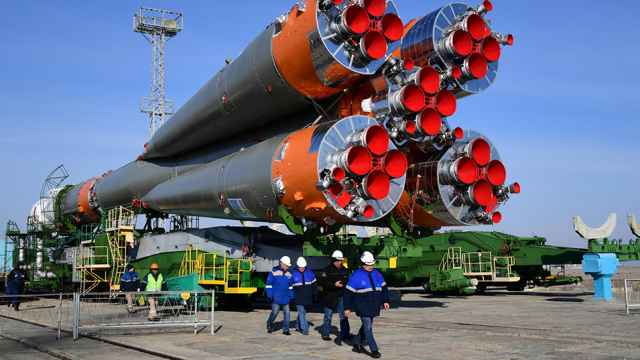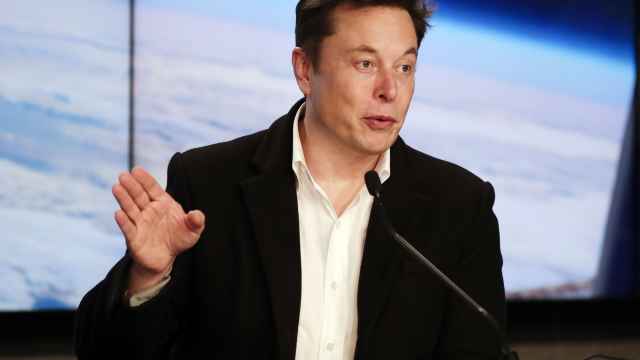The Russian Academy of Sciences said it plans to file a complaint with the United Nations over tech billionaire Elon Musk’s high-speed internet satellites, which it says will interfere with astronomers’ work.
SpaceX’s so-called Starlink constellation is a planned network of up to 30,000 satellites in low-Earth orbit that is intended to beam broadband internet globally. Russian scientists argue that sunlight reflections from Starlink’s satellites will ruin between 30% and 40% of space images.
“We’re drafting a Russian Academy of Sciences letter and... plan to send it [to the UN],” the state-run RIA Novosti news agency quoted astrophysicist Nikolai Samus as saying Thursday.
Samus said his European colleagues, particularly astronomers from Portugal, support Russia’s efforts to limit the deployment of large satellite systems.
Musk’s SpaceX has been launching Starlink satellites in batches of 60 since May and currently has 240 orbiting Earth. The company aims to make the broadband internet service operational by the end of 2020.
Russian observers have also expressed concern over Starlink’s military applications.
The U.S. Air Force started testing encrypted internet services from Starlink satellites for military planes in 2018. SpaceX said it expects to test Starlink with additional military aircraft types and communications between satellites in orbit.
Starlink is competing with Softbank-backed OneWeb, which aims to give millions of people in remote and rural areas high-speed internet beamed down from space and has already launched a batch of satellites.
Reuters contributed reporting to this article.
A Message from The Moscow Times:
Dear readers,
We are facing unprecedented challenges. Russia's Prosecutor General's Office has designated The Moscow Times as an "undesirable" organization, criminalizing our work and putting our staff at risk of prosecution. This follows our earlier unjust labeling as a "foreign agent."
These actions are direct attempts to silence independent journalism in Russia. The authorities claim our work "discredits the decisions of the Russian leadership." We see things differently: we strive to provide accurate, unbiased reporting on Russia.
We, the journalists of The Moscow Times, refuse to be silenced. But to continue our work, we need your help.
Your support, no matter how small, makes a world of difference. If you can, please support us monthly starting from just $2. It's quick to set up, and every contribution makes a significant impact.
By supporting The Moscow Times, you're defending open, independent journalism in the face of repression. Thank you for standing with us.
Remind me later.






